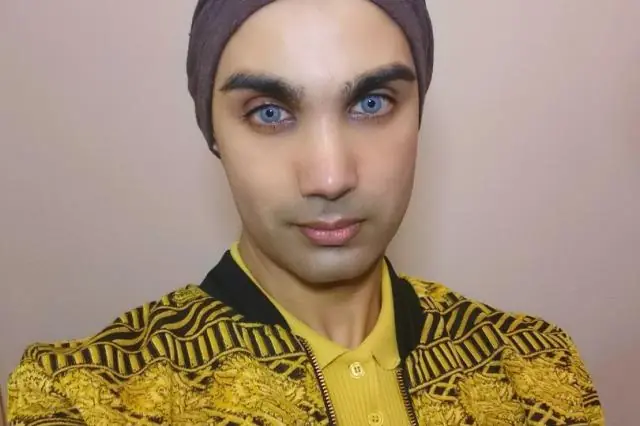
Highly intelligent people often thrive with fewer friends — and the fascinating reason behind it
Highly intelligent people often thrive with fewer friends — and the fascinating reason behind it
In today’s world, having a large social circle is often seen as a marker of success and happiness. Yet, many highly intelligent individuals tend to prefer—and benefit from—having fewer, closer friends rather than a wide network of acquaintances. This may seem counterintuitive at first, but the reasons behind this phenomenon shed light on how intelligence shapes social needs and satisfaction.
The Link Between Intelligence and Friendship Quantity
Research shows a clear trend: people with higher intelligence generally have fewer friends. More importantly, they often report greater happiness and contentment with this smaller circle of trusted companions compared to those who have many friends but less intellectual engagement.
This doesn’t mean intelligent people dislike social connections—in fact, the quality of relationships often matters far more to them than the number of connections.
Evolutionary Psychology Explains the Preference
Our brains evolved in environments where humans lived in relatively small groups, typically no larger than 150 people. Within these groups, individuals developed close-knit relationships that were easier to maintain and more meaningful. This evolutionary legacy means that, deep down, our brains feel more comfortable in smaller, tightly bonded social groups.
Highly intelligent individuals often thrive by adapting to complex modern environments, but they still tend to gravitate toward these smaller, manageable groups where relationships are more profound and less stressful.
Why Do Highly Intelligent People Have Fewer Friends?
Several factors contribute to why intelligent individuals might prefer fewer social ties:
-
Difficulty Finding Like-Minded People: Intelligent individuals often have unique interests and perspectives, making it harder to find friends with whom they truly connect.
-
Quality Over Quantity: They tend to value deep, meaningful conversations and emotional support, prioritizing a few strong friendships over many casual ones.
-
Low Tolerance for Superficiality: Casual or shallow interactions can feel draining or unfulfilling, leading to avoidance of large social gatherings or expansive social circles.
-
Introverted Tendencies: Many highly intelligent people are introverted, recharging their energy through solitude rather than frequent socializing.
The Focus on Personal Goals
Highly intelligent people often dedicate significant time and energy to personal growth and long-term objectives. Their social interactions tend to be selective and purposeful, designed to support rather than distract from these aims.
They may find that a smaller group of trusted friends provides the right balance of companionship and focus, reducing the potential stress and time commitment associated with maintaining a broad social network.
Modern Social Trends Reflect Changing Friendship Patterns
Interestingly, there has been a notable decline in the number of close friendships people maintain. Fewer people today report having a large number of close friends compared to decades ago. This trend reflects shifts in social behaviors and the increasing demands of modern life, where quality and intentionality in relationships may be taking precedence over quantity.
Conclusion
While society often encourages building extensive social networks, highly intelligent people frequently find greater satisfaction in smaller, more intimate groups of friends. The depth and quality of these connections contribute to their well-being and happiness far more than the sheer number of acquaintances.
So, if you tend to keep your circle small, especially if you identify as highly intelligent, this might be a natural and healthy preference that supports your personal and social fulfillment.
News in the same category


Study finds certain blood types linked to higher stroke risk

After tens of thousands auditions, Harry Potter's next generation cast revealed

Cia documents reveal cold war secrets of alien bases hidden on earth

Woman who claims 12 years of contact with a ghost reveals h@unting prediction for the world's end

Teacher Awarded $70 Million After Losing Both Legs Due to Medical Malpractice in Landmark Georgia Case

Unaware of his rare canc3r, man donates sp3rm to conc3ive at least 67 children across Europe - resulting in deva$tating consequences

Why swimming post-tattoo can be fat@l: Lessons from a 31-year-old man’s d3ath

Woman battling stage four colon canc3r reveals major symptom that didn't involve her gut

Early warning signs and symptoms of clogged arteries that you might overlook

Psychic who 'predicted Covid' shares incredibly worrying predictions for 2025 warns of d!sturbing events in the latter half of 2025

Scientists may have discovered one of the causes of auti$m

Ancient Submerged City Discovered Beneath the Ocean Floor – A 140,000-Year-Old Window into Prehistoric Life

What your face might reveal about your future children: scientists explore the surprising link between male features and child gender

Unveiling the Truth: Why 2XL and XXL Are Not the Same—A Deep Dive into Plus-Size Fashion Sizing

10 cities underwater by 2050 you should visit before it’s too late

17 C@ncer Symptoms You Should Never Ignore: Early Warning Signs for Better Outcomes

Groundbreaking study sheds light on possible true appearance of Jesus, and it changes everything

Chef who prepares last meals at hospice for people at end of lives says they have have one common request
News Post

THE HEARTBRE@KING RESCUE OF ETHEL: FROM PUPPY MILL NIGHTM@RES TO A LIFE FILLED WITH LOVE
Discover the touching journey of Ethel, a 5-year-old Great Dane rescued from a cr:u:el puppy mill. Learn how patience, love, and kindness transformed her life from fear and abu$e to joy and safety.

ELVIS PRESLEY'S HEARTFELT GESTURE THAT CHANGED A BLIND GIRL'S LIFE FOREVER
Discover the touching story of how Elvis Presley’s compassionate act during a 1975 concert helped a blind girl regain her sight, inspiring hope and kindness that echoes through time.

MATT LEBLANC: THE ACTOR WHO CHOSE FATHERHOOD OVER FAME – A STORY OF LOVE, SACRIFICE, AND QUIET STRENGTH
Discover the touching journey of Matt LeBlanc, the beloved actor behind Joey Tribbiani, who stepped away from Hollywood spotlight to care for his daughter diagnosed with a rare brain condition. A heartfelt story of love, sacrifice, and fatherhood.

A Heartwarming Act of Kindness: How One HVAC Owner Saved a Family’s Winter—and Honored a Deployed Soldier
When a family’s furnace failed on a freezing night, a heating company owner went above and beyond—fixing the problem and charging just $1 in a touching tribute to military service. Discover the inspiring story of generosity and gratitude that warmed m

Officer Reese’s Compassionate Response: A Heartwarming Moment at Starbucks
Officer Reese calms an upset man at Starbucks with empathy, showing true kindness. Read this story! ❤️☕

At her mother’s wedding, the girl took the microphone to congratulate her but instead showed a sh0cking video.

The Hidden Key in His Work Boot: Uncovering a Secret Life and the Shattered Marriage That Followed
When I found a mysterious second key hidden in my husband’s work boot, it unraveled a web of l!es, a secret child, and a hidden life. This is the gripping story of betrayal, heartbre@k, and the pa!nful journey toward truth and unexpected reconciliation.

After Betrayal: How One Woman Found Strength and Reclaimed Her Life from a Br0ken Marriage
After 32 years of marriage shattered by betrayal, Lidia discovers her inner strength and dignity. This gripping story reveals her journey from heartbreak to empowerment, showing how she turned pain into a new beginning.

When a Wedding Gift Sparks a Family Fallout: The Sh0cking Truth Behind the Missing Wedding Video
At her niece’s lavish wedding, a grandmother’s heartfelt gift is cr:u:elly dismissed, igniting a dramatic family clash. Discover how love, legacy, and justice prevailed amid the mysterious disappearance of the wedding video and shattered illusions.

Unearthing Betrayal: How a Hidden Box Sparked My Journey from Heartbre@k to Healing and New Love
After discovering a hidden box revealing years of lies beneath my garage floorboards, I faced the crushing truth of betrayal. A year later, I found strength, reclaimed my life, and embraced new love.

4 household appliances that are energy hogs and how to tame them

5 Common Electric Kettle Mistakes That Could Lead to Serious Accidents

Why Dogs Are More Sensitive and Alert During Thunderstorms Than Humans: The Science Behind Their Unique Instincts

When a 911 Call Changed Everything: The Heartwarming Story That Proves Heroes Walk Among Us
Discover how a compassionate 911 operator went beyond duty to help a starving cancer survivor, sparking a community movement of kindness that will restore your faith in humanity.

Why Experts Recommend Putting Your Luggage in the Bathtub After Checking in: Turns Out It Has Many Unexpected Benefits

Experts reveal the effects on your body from eating one meal a day after a sh0cking simulation

Major medical breakthrough: Korean researchers discover “Undo” mechanism to transform tumor cells back to normal

If you often notice ringing in your ears, this might be a sign that you will suffer from ...

Drink water on an empty stomach right after waking up for 1 month and see how you transform physically and mentally

MY STEPMOTHER K!CKED ME OUT AFTER DAD'S DE@TH - THEN THE BLACK SUVs SHOWED UP
When Elish loses her father, she expects grief, not betrayal. K!cked out of her childhood home by the woman who never wanted her, she makes one desperate call. But what waits on the other end isn’t pity but power.